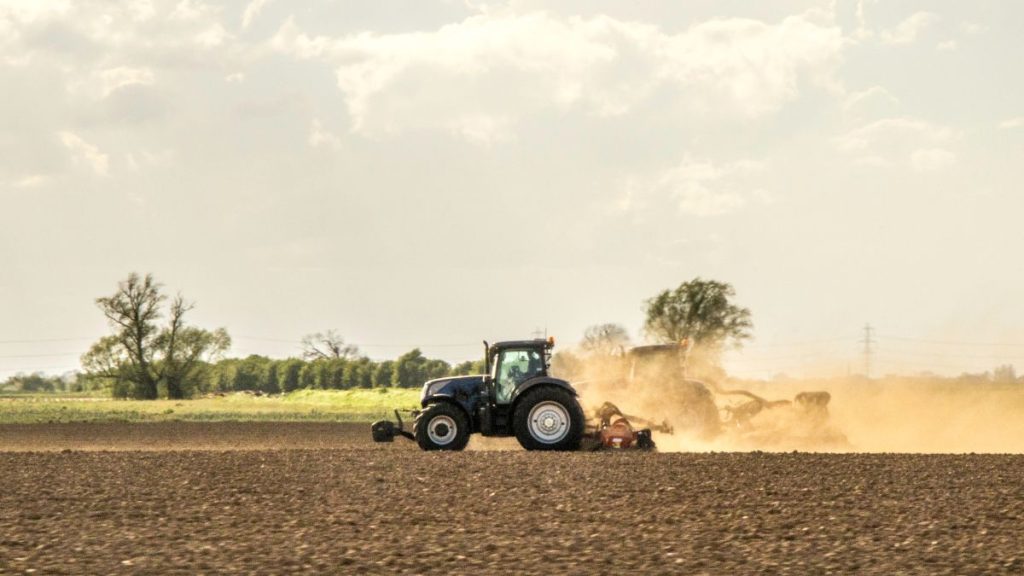Farmers are the people who run land and agricultural operations to produce crops, raise livestock, or create other agricultural products. They oversee all aspects of agricultural production, from planting and animal care to harvesting and sales, while adapting to weather conditions and market demands. Whether working on small holdings or large stations, they’re often self-employed rather than working for others.
If you love working outdoors, enjoy physical work, and thrive on variety and challenges, becoming a farmer could be right for you.
What skills do I need as a farmer?
- Strong planning & problem-solving abilities
- Technical & mechanical expertise
- Physical fitness & stamina
- Agricultural knowledge & expertise
- Business management capabilities
- Adaptability & resilience
- Environmental awareness
- Animal handling skills (if applicable)
What does the job involve?
- Planning annual production requirements
- Managing soil preparation & testing
- Selecting & caring for crops or livestock
- Monitoring weather conditions
- Maintaining farm equipment & infrastructure
- Managing water & nutrition systems
- Coordinating harvest & sales
- Overseeing farm operations & staff
- Maintaining accurate financial records
- Managing emergency responses (drought, floods, fire)
What industries do farmers typically work in?
- Agriculture, Forestry & Fishing
What Career Cluster do farmers belong to?
Farmers typically belong to the Maker Cluster because they create and maintain agricultural products and systems, working hands-on to produce food and other agricultural goods.
What kind of lifestyle can I expect?
Farming involves long hours and significant responsibility, with work heavily influenced by weather conditions and market factors. The lifestyle is highly demanding but can be very rewarding for those who enjoy outdoor work and being their own boss.
Farmers typically work full-time, with only around a third working part-time. Full-time workers average 55 hours per week, above the standard work week. Salaries can vary significantly based on farm type, size, and success, but most farmers can expect to earn an average salary throughout their career.
How to become a farmer
Becoming a successful farmer requires a combination of practical experience, business knowledge, and technical skills. While formal qualifications aren’t essential, education can help you understand modern farming practices and business management more quickly.
Starting with hands-on experience is often the best first step. Many aspiring farmers begin by working on established farms to learn the fundamentals and gain valuable skills.
If you’re interested in formal education, you have several pathways to choose from. Vocational qualifications offer practical, skills-focused training that you can often complete while working. For those interested in university study, a Bachelor of Agriculture or Bachelor of Science with an agricultural focus can provide comprehensive theoretical knowledge alongside practical skills.
What can I do right now to work towards this career?
If you’re in high school and interested in becoming a farmer, here are some steps you can take:
- Focus on subjects like English, Mathematics, Science, and Agriculture
- Gain hands-on experience through work experience on farms
- Take short courses in specific areas of agriculture and develop practical mechanical and technical skills
- Join agricultural youth programs or rural organisations
Where can I find more information?
- National Farmers’ Federation (Aus)
- Federated Farmers of New Zealand
- National Farmers Union (UK)
- Irish Farmers Association
- National Farmers Union (US)
- National Farmers Union (Canada)
Similar careers to farmer
- Farm Manager
- Agricultural Scientist
- Stock and Station Agent
- Aquaculture Farmer
- Agricultural Sales Representative
- Viticulturalist
- Forestry Worker
- Agricultural Consultant
- Horticulturalist
Find out more about alternative careers on our Job Spotlights page.


